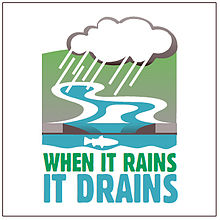Sharphooks
Well-Known Member
Spent the morning under my trailer getting the calipers off for a complete brake rebuild and what do I see? A nice little sub-development of barnacles. Since I owned the boat it sits on a trailer when it's not swimming but it appears the previous owner kept it at a marina.
So the roofs and the children's bedrooms and the livingrooms have been removed on most of them but if you rub your hand over what's left of the basements, no doubt it disrupts laminar flow and compromises efficiency
So I crawled under there with a 1600 PSI power washer, gave therm a real long blast, and they stuck their tongues out at me.
Is there anything short of sandpaper that will get barnacles off fiberglass?
thanks!
So the roofs and the children's bedrooms and the livingrooms have been removed on most of them but if you rub your hand over what's left of the basements, no doubt it disrupts laminar flow and compromises efficiency
So I crawled under there with a 1600 PSI power washer, gave therm a real long blast, and they stuck their tongues out at me.
Is there anything short of sandpaper that will get barnacles off fiberglass?
thanks!


